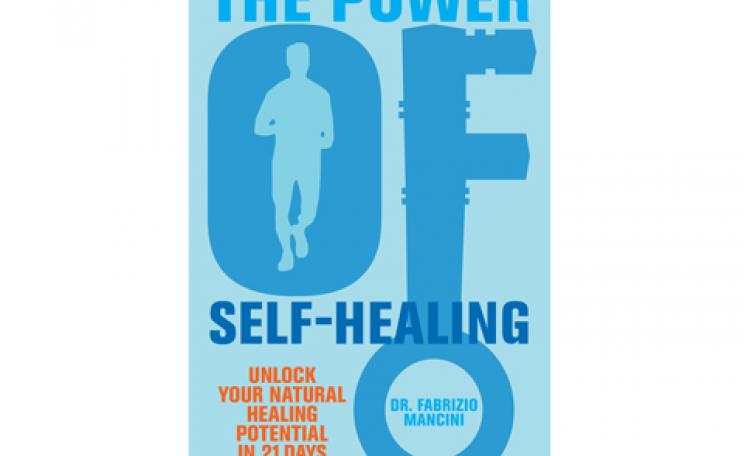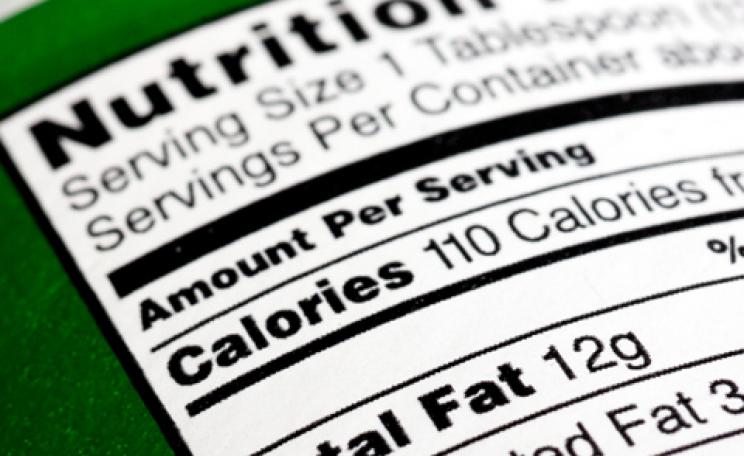Last month Ying Wu, a Chinese herbal medicine practitioner from Essex, pleaded guilty to charges of supplying a banned substance to a client who later went on to develop cancer.
The substance in question, aristolochic acid, has been used in traditional medicines for thousands of years. However within the last decade it has been identified as a carcinogen and banned.
Concerns about the potential toxicity of herbal medicines have been growing over the decades. Traditional Chinese medicine (TCM) has been linked to liver failure on several occasions and surveys of Ayurvedic medicines have found up to 20 per cent contain dangerous levels of heavy metals. In another study, up to 3 per cent of herbal preparations to combat erectile dysfunction were found to have been contaminated with toxic levels of prescription drugs.
Serious concerns have also been raised about food supplements with a variety of studies showing that high doses of vitamins and minerals may cause liver damage and cancer.
In order to tackle these two areas of concern, a raft of EU legislation has been passed with the aim of protecting the public and allowing consumers to select the healthcare of their choice.
However, the practicalities of implementing this legislation is raising questions about whether these laws will in fact end up limiting people's choice, and some fear the regulations could spell the beginning of the end of natural healthcare.
Inappropriate standards
Traditional herbal medicines (including common western preparations such as arnica) are regulated by the Traditional Herbal Medicinal Products Directive (THMPD) (2004/24/EC amending). This allows pre-prepared herbal medicines to make claims and be sold within the EU providing they can provide proof of 30 years’ continuous use, of which 15 has to be within the EU. Medicines that pass this time criteria must then also provide test results to demonstrate that they fall within accepted standards for toxicity and stability.
According to the Alliance for Natural Health these standards are wholly inappropriate for herbal medicines because they are based upon requirements for pharmaceutical products. Unlike these products, herbal preparations will, by their very nature, decline in stability over a period of time.
Herbal preparations which pass these tests may be sold over the counter without the further advice of a practitioner. Those which do not pass may yet be sold, but only on prescription from doctors, dentists and selected nurses and pharmacists. Traditional herbal medicine practitioners will not be able to recommend these pre-prepared medicines if they are not available for sale to the general public.
THMPD will replace Section 12(2) of the UK Medicines Act 1968, which will become obsolete on 30th April 2011 after a seven year transition period. After this time, only those medicines approved by THMPD will be available for sale over the counter in the UK. To date, only 48 medicines of the thousands previously allowed have been approved.
The UK Medicines and Healthcare Regulatory Agency recognises that there are deep concerns among traditional healthcare practitioners at the situation. However in 2007 the European Commission concluded that at present there is 'insufficient experience of the Directive to justify making substantive changes', and nothing has happened since to change its opinion.
The whitelist...
Over 40 per cent of the UK population have taken food supplements and nearly 25 per cent took multivitamins last year. Until 2002 these were recognised as just another form of food, but they are now regulated separately under the Food Supplements Directive (FSD) (2002/46/EC).
This has established a whitelist of those nutrients that may be sold over the counter to the public as supplements, and work is concluding on the maximum permissible dosages for these supplements.
These limits are being worked out using two factors: first the amount of a vitamin or mineral a person can take every day without causing their body harm, and secondly by defining harm as the least serious reaction noticeable in the most sensitive person. This precautionary approach means the maximum level is often set a long way below any dosage considered to be toxic.
In 2004 the UK Food Standards Authority recognised that people may wish to take doses greater than a maximum amount for a short period of time: for example, vitamin C during the winter or vitamin B6 around menstruation. Supplement manufacturers agreed that their 'over dose' products would carry appropriate information including advice to seek professional medical attention if symptoms persisted.
However, when the FSD comes fully into force in late 2010, this agreement will cease and the maximum level may only be breached by products that have been tested sufficiently rigorously to be classed as medicines. There are fears that smaller food supplement manufacturers will be unable to afford such tests.
Politics, not science
The problems are illustrated by looking at one substance in particular - nicotinic acid. Studies have shown that long term consumption of 500mg/day or more of nicotinic acid (a form of vitamin B3 or niacin) may cause liver damage. However 'mild and transient' reactions such as uncomfortable skin flushes can occur with one-off dosages of between 30-50mg. These lessen in intensity as the body grows used to the dosage.
Since the mid 1980s it has been known that very high dosages of nicotinic acid will lower cholesterol and reduce the risk of a heart attack. The maximum dosage recommended under supervision is 2000mg, while the maximum currently available without prescription is 500mg.
The maximum level takes the least serious reaction (an uncomfortable skin flush) in the most sensitive case (30mg) and then applies an 'uncertainty factor' to compensate for possible further complications in older people. This produces a maximum level of 10mg which only medicines will be able to exceed.
Health food manufacturers are understandably worried.
'There is nothing dangerous in these supplements,' says Martin Last, Vice Chair of the Health Food Manufacturers Association. 'The problem is ... politics, not science.'
Rob Verkerk, Director of the Alliance for Natural Health, agrees and points out that 'if we were to apply this kind of thinking to wheat, because 1 per cent of the population suffers from coeliac disease, we would have to ban wheat!'
An 'HGV test to ride a bicycle'
Any claims made by natural therapies that are not medicines are regulated by the Nutrition and Health Claims Regulations (NHCR) (1924/2006). There is little argument that these regulations are needed, as there have been several cases where products have proved to be ineffectual and some have even been found to be damaging. However in order for a claim to be considered legitimate its efficacy has to be proved, and manufacturers say that the European Food Safety Authority (EFSA) appears to have decided that it will only accept the highest form of medicinal proof available: randomised clinical trials.
These types of trial provide near certainty that a substance will meet a claim made about it, but they’re also extremely expensive. This is why most everyday medical advice - including reducing salt intake and eating five portions of fruit and vegetables a day - are based upon less conclusive observational trials.
This apparent double standard has caused a lot of anger within the natural healthcare community. Martin Last describes the situation using this analogy: 'I want to ride my bicycle. The regulation says I have to apply to EFSA to do this. Instead of applying standards appropriate to a bicycle, they’re imposing a test akin to that needed to drive an articulated lorry. It’s ridiculous!'
Prunes are banned
Because the bar has been set so high there have already been some notable failures. For example, prunes have been thrown out because there is insufficient evidence that they help 'the maintenance of normal bowel function'. However, a company that can afford the trials could formulate a product using prunes and then submit a claim under the NHCR. If it is successful, it could become the only product available in the EU which is legally allowed to claim that prunes help bowel movements.
The regulation is putting leading edge natural health products at risk as well. Pro Bio Healthcare has recently formulated a product that uses nucleotides harvested from spent brewer’s yeast to promote gut health, especially among those who suffer from irritable bowel syndrome.
Nucleotides are already known to be a key component in breast milk, and there is plenty of data from observational trials suggesting the treatment’s efficacy in adults. However, it remains uncertain whether the company will be able to afford the further trials necessary to allow their claims under the NHCR.
Rachel Hoyle, Pro Bio’s Chief Operating Officer, is incredibly frustrated by the situation: 'These regulations are extremely bad news,' she said. '[They’re] driving small companies out of business.'
When foods become drugs
At the core of the concerns of the natural healthcare community is a fourth piece of EU legislation, the Human Medicinal Products Directive (HMPD) (2004/27/EC amending).
This is referenced by all other legislation as holding the definition of a medicine, being anything 'used in, or administered to, human beings either with a view to restoring, correcting or modifying physiological functions by exerting a pharmacological, immunological or metabolic action'.
This 'makes all foods technically drugs', according to the Alliance for Natural Health. The preamble to the directive states that it does not refer to food and drink, but this is not legally binding. Furthermore, the use to which the Novel Foods Regulation (258/97) is now being put makes many sceptical.
The Novel Foods Regulation was originally introduced to regulate the burgeoning science of genetically modified crops. However, because its phrasing is so broad, it is now being used to regulate any food which was not consumed 'to a significant degree' within the EU prior to 1997. It is feared that a similar legislative creep may see the HMPD used to reclassify food and food supplements as medicines. Many would argue the high bar for recognition under NHCR means this is already happening.
There is little doubt that regulation is required for supplements, health claims and traditional medicines in order to protect consumers from charlatans and under-qualified practitioners. However with legislation being drawn so broadly, and the requirements for claims set at a one-size-fits-all, there is a very real danger that useful natural products may be elbowed out on the grounds of wealth rather than efficacy.
Chris Milton is a freelance journalist






